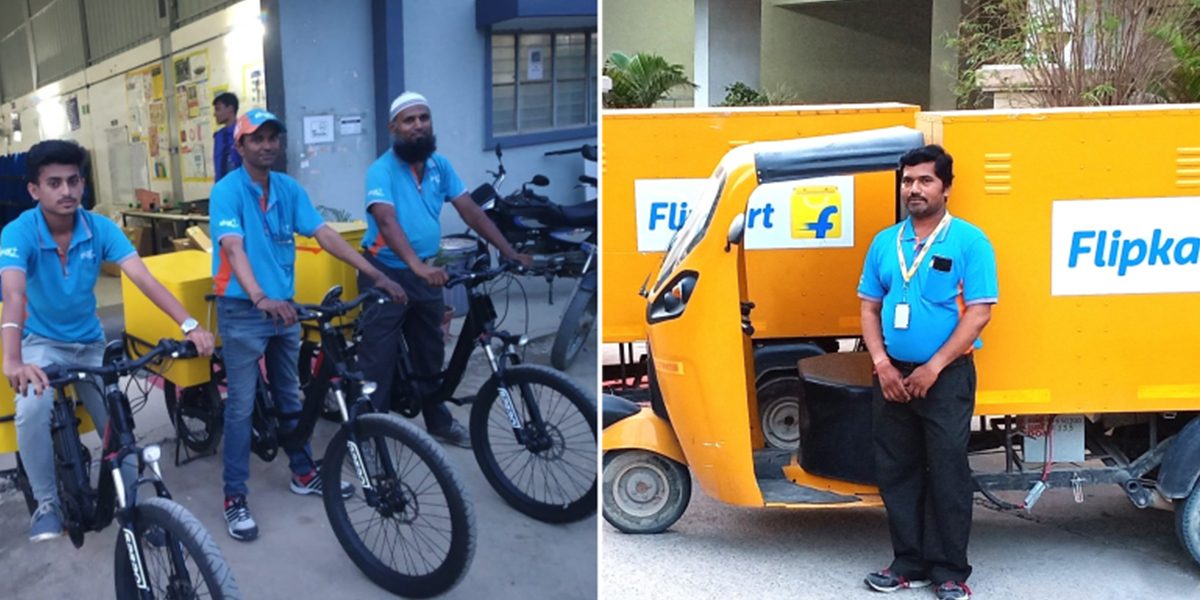At a time when electric vehicles are becoming more of a necessity than a choice due to the changing climatic conditions in light of ever-rising pollution, Flipkart has announced its plan to make 40% of its EV fleet drive by electric vehicles (EVs) by the end of the first quarter of 2020.
The company has already started on the process of replacing traditional vehicles with EVs in its fleet with 8 electric vans in Hyderabad, 10 in Delhi NCR, and 30 electric bikes in Bengaluru. The number of electric vans will be taken up to 160 by the end of 2019 as a part of the 40% plan.
Due to the lack of proper logistical information and infrastructure – charging capacity and distance covered by EVs and the implied need of power stations – the company cannot fully go electric mobility driven by 2020, but it still is sure about achieving a 40% number.
This move comes at a time when the government itself is bullish on the usage of EVs and is even discussing the deadline after which only electric two-wheelers and three-wheelers will be there in the market. Even the investment in startups that are planning to adopt EVs (like Bounce, Vogo) have seen a significant increase. Ola, a unicorn, continuously working on enhancing mobility solutions in the EV segment.
Zomato, another unicorn, has entered into the partnership with several startups operating in the cycling segment like Mobycy, e-HIRAN, Yulu, TNT, and Zoomcar’s PEDL to provide cycles and e-cycles to the fleet.
Besides, it has just tested its first drone delivery with successful results.
In fact, Walmart, that now owns Flipkart, itself is heavily focussed on drone deliveries. It filed 97 drone patents with the World Intellectual Property Organisation.
However, for all these organisations, investments in EV is not just a matter of environmental concern. The companies stand to gain from the move financially as well and that is because of how EV usage result in cost-cutting and hence brings efficiency in operations.
As Mint quotes Anup Jain, Managing Partner of Orios Venture Partners, the cost of running EVs for delivery is under Rs 1/km, while the same figure is Rs 3.5/km for traditional vehicles.
To leverage this efficiency model, and also board the train of environment friendly companies and reduce its carbon footprint, Flipkart is heavy on this agenda has partnered with manufacturers and will work closely with the same for the production of suitable EVs.














